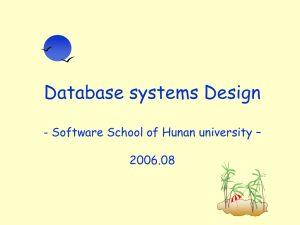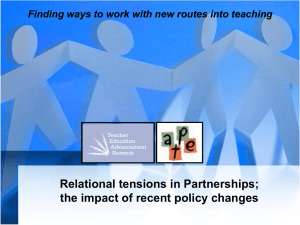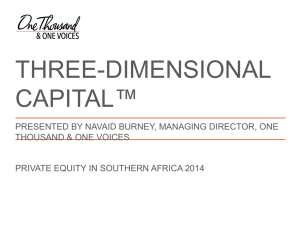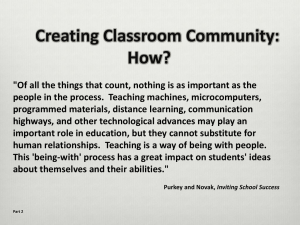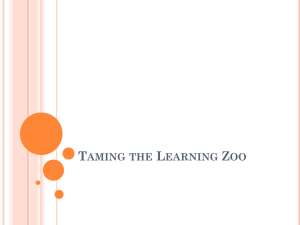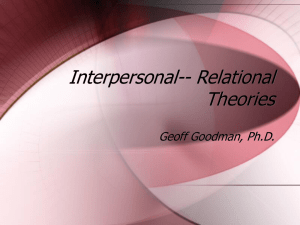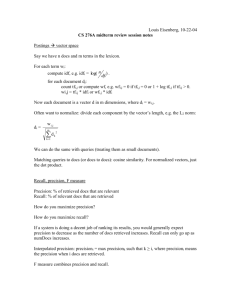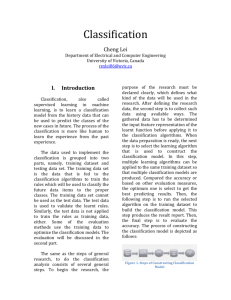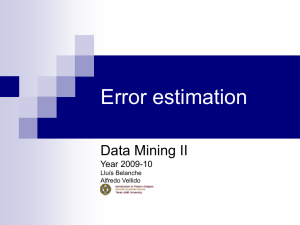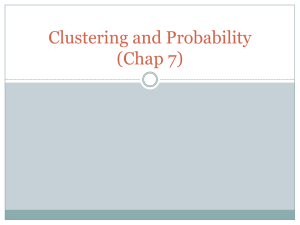Extracted social dimensions
advertisement
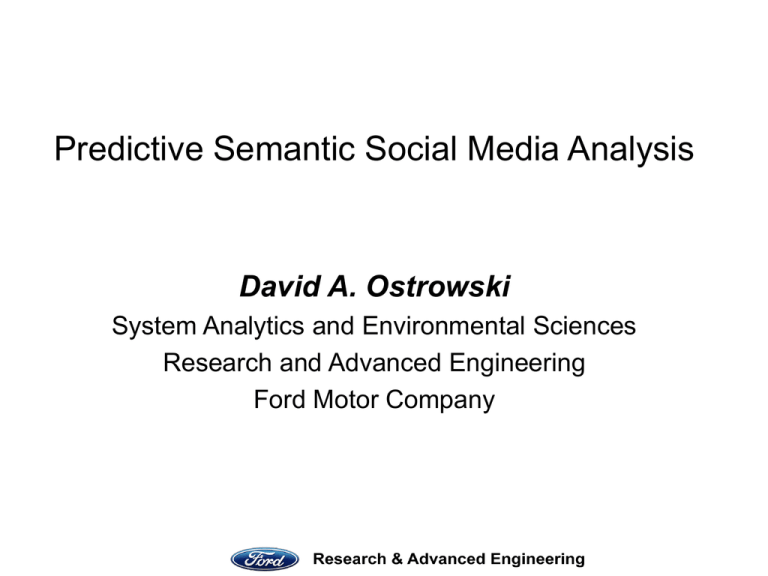
Predictive Semantic Social Media Analysis David A. Ostrowski System Analytics and Environmental Sciences Research and Advanced Engineering Ford Motor Company Social media • Influential • Sample of the web – News driven • CRM – Real-time – Less biased • Unique opportunities for analytics Opportunities • Old Model – Reactionary • Damage control • Inquiries • Confirm positive reaction • New Model – Preemptive • Focused engagement – Promotions – Events – Media • Anticipatory Social Dimensions • Describes affiliations across a network • Values / Community • Reinforced by relationships • Utilize to predict purchase behavior Relational Learning • ‘Birds of a Feather’ • Leverage each local network to semantic understanding • Relational Learning =>Social dimensions Framework Overview • Relational learning – Strengthen representation values – Support knowledge Political affiliations • Unsupervised classification – Generation of dimensions schools Movies • Supervised classification – Dimensions => behavior Fb identifier Buying habits Issues positions Television Shows Fb identifier Fb identifier Religious views associations Framework Overview labels taxonomy Social Dimension Local network Higher level features behaviors features features RN classification K-means cluster Supv. classification Case Study One • 4000 facebook identifiers • Associations to two vehicle lines • Question: – What can we extract to characterize between these two purchase behaviors Relational Learning Step Facebook Accounts • Extracted data from FB 100 RN Bayes k-Means 90 • Consolidated interests 70 Accuracy • Applied the RN algorithm 80 60 50 40 30 • Guided by taxonomy 20 10 0 45 50 55 60 65 70 75 80 missing labels (normalized) 85 90 Preliminary cluster statistics veh1 veh2 veh1 veh2 veh1 veh2 veh1 veh2 k=3 k=3 k=4 k=4 k=5 k=5 k=6 k=6 1 46 21 44 14 21 35 7 20 2 39 42 16 27 8 22 43 14 3 13 36 12 24 1 12 6 16 4 5 6 26 32 0.3 15 13 8 45 14 9 9 19 35 normalized differences between vehicle lines Extracted social dimensions • Applied feature sets to k-means (3-6) • Each classification attempt to characterize between vehicle line and a social dimension (value / interest ..) • All classification to be considered towards behavioral training • Also considered community detection – Via maximization of a modularity matrix via leading eigenvectors Applied Supervised Classification for the Behavior prediction •Applied sets through three Machine Learning algorithm •Simple Bayes precision .7 , recall .69 • Weightily Averaged One-dependence Estimators (WAODE) precision .69 recall .70 •J48 precision .69 recall .70 Case Study 2 • 20000 Facebook IDs across four vehicle lines • Relational modeling – Similar performance as first case study • Social Dimensions generated for k=(3-7) – Not as much separation after k=6 clustering • Precision recall (among simple bayes, WAODE, J48) .469, .483 .591, .588 .534, .536 Next Steps • Institutionalization – Extract / define exactly what our dimensions are explaining in our data sets. • Relate to specific association – Values – community Q/A See me for friends and neighbors discount…. dostrows@ford.com Appendix (software) • • • • ‘R’ igraph ‘R’ km module Weka Ruby -Watir
